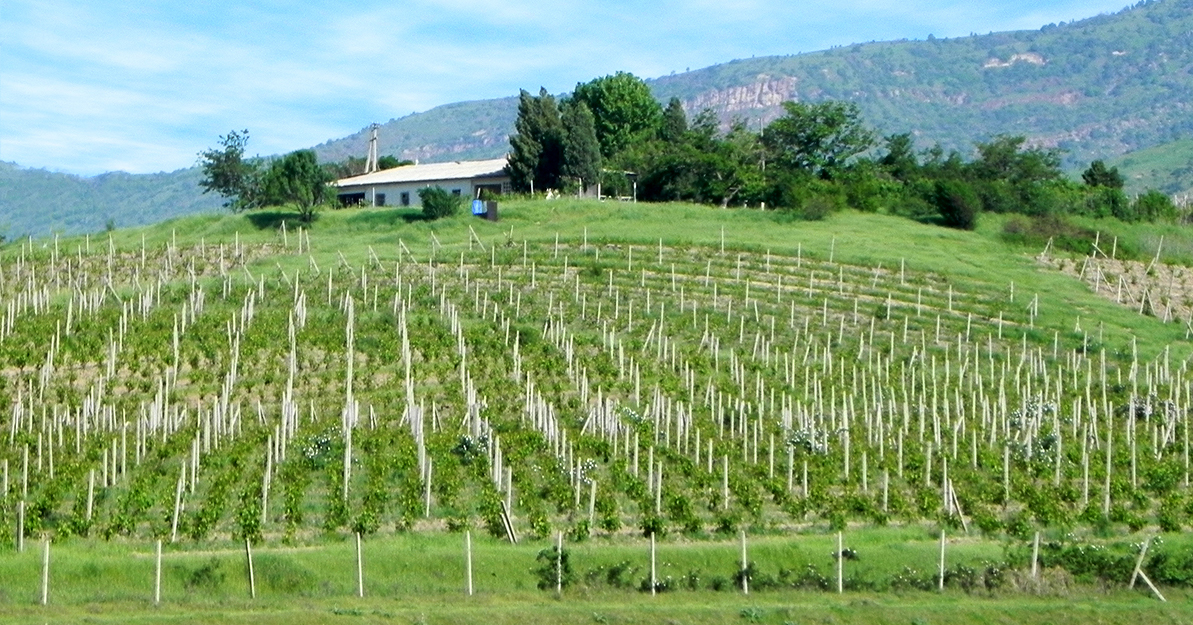Head of the ICH Department, Research Institute of Culture and Information
Gardening is a popular branch of traditional agriculture in Tajikistan. The term bāgh (garden) among Tajiks has three meanings: a home garden inside one’s own yard; a walled garden alongside the yard; and a garden far from the home and yard, where people go during summers to temporarily live and work. In these gardens, people grow fruit-bearing and shady trees as well as flowers and other crops.
Tajikistan’s environment and climate make it ideal to grow various fruits, such as apples, grapes, pomegranates, peaches, quinces, figs, pears, plums, apricots, cherries, sweet cherries, mulberries, nuts, and almonds.
Tree breeding in traditional Tajik gardening takes place through various methods, like inoculation, branch grafting, and seed sowing. Branch grafting is one of the older methods of breeding fruit trees and takes different forms, grafting leaves in the trunk, grafting branches in the stump, implanting buds, and implanting the bark.
Gardening work takes on different forms that can include irrigating, pruning, softening the ground around roots, fertilizing, whitening the lower parts of tree trunks with lime, removing unnecessary leaves from grape trees, and spraying with pesticides. Depending on the season, different gardening work takes place. For example, before winter in some places, people wrap the trunks of pomegranate trees, fig trees, and persimmon trees with straw and old clothes to prevent the trees from freezing. Similarly, some gardeners put the trunk of young pomegranate and grapes underground or put of their roots in sheep manure.
In northern Tajikistan, especially in Khujand, Asht, Isfara, and Konibodom as well as the Badakhshan region, growing and producing apricots is an important part of local gardening and has been since ancient times. In these areas, gardeners grow different kinds of apricots, such mahtobi (moony), qandak (candy), amiri (apricot of emirs), gurdai gov (cow kidney), donakajak (crooked seed), muslimi (Muslim), surkh (red), nuli zoghak (raven beak), rukhi javonon (cheek of youth), falghari (from Falghar), ghuling (dry apricot), obak (watery), shokh-shikan (branch breaker), turshak (sour), and shirpayvand (milky graft).
Producing apples is more popular in the Hisar and Rasht valleys and the Darvaz region. Gardeners grow upwards of twenty kinds of apples, including surkhseb (red apples), safedseb (white apples), pakhtaseb (cotton apples), khuboni (good-looking), turshak (sour), sangseb (apples grown stony places), kharbuzaseb (melon apples), and samarqandi (belonged to Samarkand). Also grown in these areas are various kinds of peaches and pomegranate. The peach varieties include white, red, anjir-shaftolu (fig peaches), lola-shaftolu (tulip peaches), and some of the pomegranates are shirin (sweet), sabzanor (green), tursh (sour), and handala-anor (cantaloupe).
Silk trees have diverse uses in Tajik life. Carpenters use its hard wood to make wooden plates, spoons, and some musical instruments. Some people use the leaves to breed silkworms. Other locals use the mulberry fruits to prepare sweets, juice, dried mulberries, jams, and flour.
Growing vines in traditional Tajik gardening demands special care. In early spring gardeners, prune branches, remove old bark, and spread lime to bottom parts of trunks. If the fruit yield is low, gardeners prune the grape vines, taking away some extra leaves and twigs, to give the trees more energy for fruit production. In November, just before the first snow, gardeners pick the grapes and store them for the winter in special rooms called angurkhona. In the room, the grapes are hanged from the ceiling on special ropes.
Tajik gardeners grow many grape varieties, including anguri siyoh (black), chilika (lady finger), dili kaftar (heart of dove), toifi (popular), obak (watery), maska (butter), husaini (belongs to Husain), kishmish (without seed), and javz (nut). Grapes are generally not eaten fresh. Instead some are dried as raisins, and others are used in preparing jam, juice, vinegar, and sweets.
Many Tajik proverbs, folksongs, and beliefs are related to gardens, fruits, and trees. These are often used as traditional wisdom, advice, and instruction for indigenous people. Thus, by combining the traditional wisdom and practices with modern scientific knowledge productivity of home gardens can improve without any damaging the environment.







